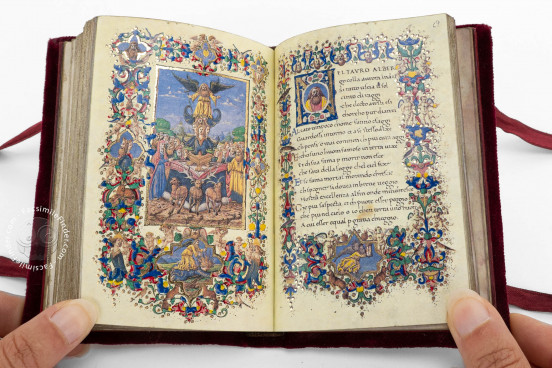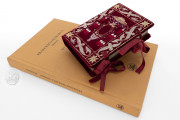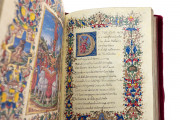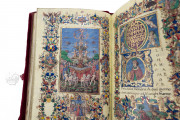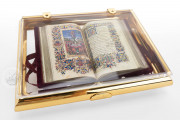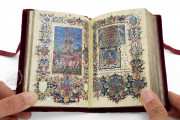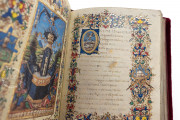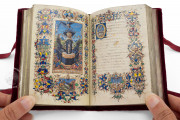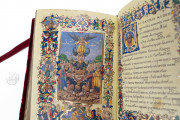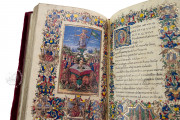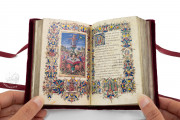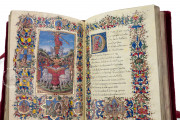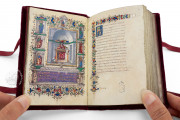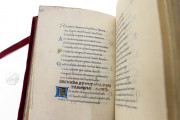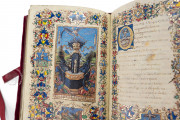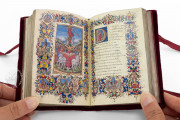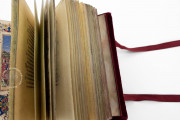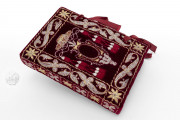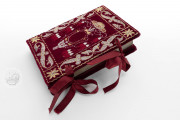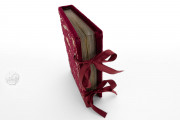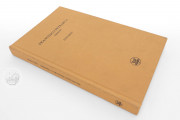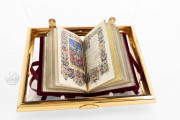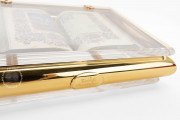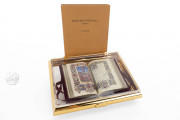This remarkably small manuscript in the Biblioteca Nacional de España, Madrid, contains the famous poem by Petrarch entitled The Triumphs. The quality of the painting of this tiny codex is exceptional. Despite the limited size (11.5 × 7.5 cm), the illuminator provided the manuscript with elegant and refined miniatures of outstanding quality demonstrating extraordinary technical skill as he would have used a magnifying glass and an ultra-fine brush to create the detailed decorations of this little treasure book.
The Refined Illuminations of Petrarch's Triumphs
The manuscript contains a Life of Petrarch and the Triumphs, a poem written in terza rima that provides examples of the Triumphs of Love, Chastity, Death, Fame, and Time. The poem describes historical and biblical figures who allow Petrarch to reflect on universal themes like love and time. The preciousness of this codex consists in its exquisite full-page miniatures preceding each of the Triumphs.
Written in Old Italian, the text displays titles in gold lettering and initials alternating gold and blue, which mark the beginning of major sections. The book had probably been in Italy for a long time until, in the eighteenth century, Cardinal Zelada brought the manuscript from Italy to Spain.
The Illuminator of the Book of Petrarch's Triumphs
The identity of the illuminator working on this precious manuscript is a matter of debate. A larger manuscript containing Petrarch's poem was made in 1475 for Lorenzo de' Medici and illuminated by Francesco d'Antonio del Chierico. The comparison between the codex in the Biblioteca Nacional de España and the manuscript made for Lorenzo de' Medici has brought scholars to suggest that Francesco D'Antonio del Chierico might have been responsible for the miniatures of the small manuscript kept in Madrid as well.
More recently, scholars have suggested the attribution of the illuminations to the Florentine artist Ricciardo di Nanni. The technical ability of the painter is evident especially in the seven full-page miniatures representing the triumphs.
Binding description
Binding
Red velvet and silk, with among other motifs embroidered in silver relief, cardinalate, surely in reference to the dignity of its last owner, Cardinal Zelada.
We have 1 facsimile edition of the manuscript "Madrid Triumphs by Petrarch": Trionfi. Petrarca facsimile edition, published by Vicent Garcia Editores, 1996
Request Info / Price
